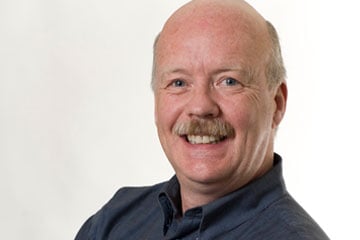The University of Ottawa has been selected by the federal government to administer the recently revamped Court Challenges Program.

The University of Ottawa has been selected by the federal government to administer the recently revamped Court Challenges Program.
Richard Clément, a professor at the Official Languages and Bilingualism Institute at the university who will serve as chairman of the centre’s new administration committee, says UOttawa hosting the CCP “fit very well with what we perceive as the message of the university” considering that as a bilingual university, they are particularly interested in language rights and also pointing out the Human Rights Research and Education Centre at the faculty of law.
“This is a joint effort, a multidisciplinary effort, on the part of the university faculty of law and the institute working together,” he says.
Mélanie Joly, Minister of Canadian Heritage who has been charged with implementing the modernized CCP, announced Sept. 5 that UOttawa had been selected.
The university, which was selected following a request for proposals, will administer the program by creating the Canadian Centre for the Court Challenges Program. The CCCCP will support the work of the two expert panels that make the funding decisions.
Clément says there are still a few things that need to be settled before the centre can officially launch — one is negotiating a contribution agreement which will spell out the details of the university’s contract with the federal government.
“It’s not just ‘You got the job’ — there are a lot of other details and that’s where the devil is,” Clément notes.
Though the CCCCP will have administrative support from the university, it will be independent “in its goals and funding decisions,” according to a news release from UOttawa. Selecting a third-party institution to host the CCP is meant to ensure it will operate independently, which is one of the mandates for the revised program. Along with Clément, the program will be managed by the director of the Human Rights Research and Education Centre and a professor of law specializing in language rights at the University of Ottawa’s Faculty of Law. The centre will also hire a small staff — “about four-and-a-half people,” Clément says — including a director who may or may not be a lawyer, but a lawyer is preferred, he notes; two lawyers, one an expert in language rights and one an expert in human rights; along with clerical help and a part-time communications person.
The two lawyers will do the preliminary analysis and present the cases to the committee, the committee will make the decision, and then the lawyers will interact with the existing lawyers on the approved files.
The modernized CCP was announced in February, with $5 million allocated annually to the new program. About $1.5 million minimum is earmarked for the clarification of official language rights, with the remaining funds allocated for the clarification of other rights covered by the program.
The CCP will “work to advance the rights and freedoms of all Canadians by providing financial support for the litigation of test cases of national significance in the realm of official language rights and human rights in Canada,” according to a statement announcing UOttawa’s role.
Over the next few months, an “open, transparent and merit-based process” will be launched to select members for the expert panels, with one panel responsible for official language rights and one for human rights. The panels, composed of seven members each, will assess funding applications for court cases that meet the program’s criteria and allocate the available money accordingly.
“The criteria for selecting members is not even spelled out yet,” says Clément.
In the release, Joly also named the five members of the expert panel selection committee: Jenifer Aitken, assistant deputy minister of Strategic Policy, Planning and Corporate Affairs, Department of Canadian Heritage; Gino LeBlanc, director of the Office of Francophone and Francophile Affairs, Simon Fraser University; Renu Mandhane, chief commissioner of the Ontario Human Rights Commission; Audrey Poitras, president of the Métis Nation of Alberta; and Laurie Wright, assistant deputy minister, Public Law and Legislative Services Sector, Department of Justice Canada. The committee is tasked with composing a short-list of qualified candidates for the two panels and providing it to Joly.
The original CCP was cancelled in 2006. The new CCP aims to be more streamlined than the original program. UOttawa will receive the active legacy files from the former program as part of its role as administrator of the new CCP.
Although Clément has no official start date for the centre, he says “at this point in time, April 1, 2018 for receiving new requests under the new program” is looking realistic — though he asks for leeway of a month, give or take, in either direction.










